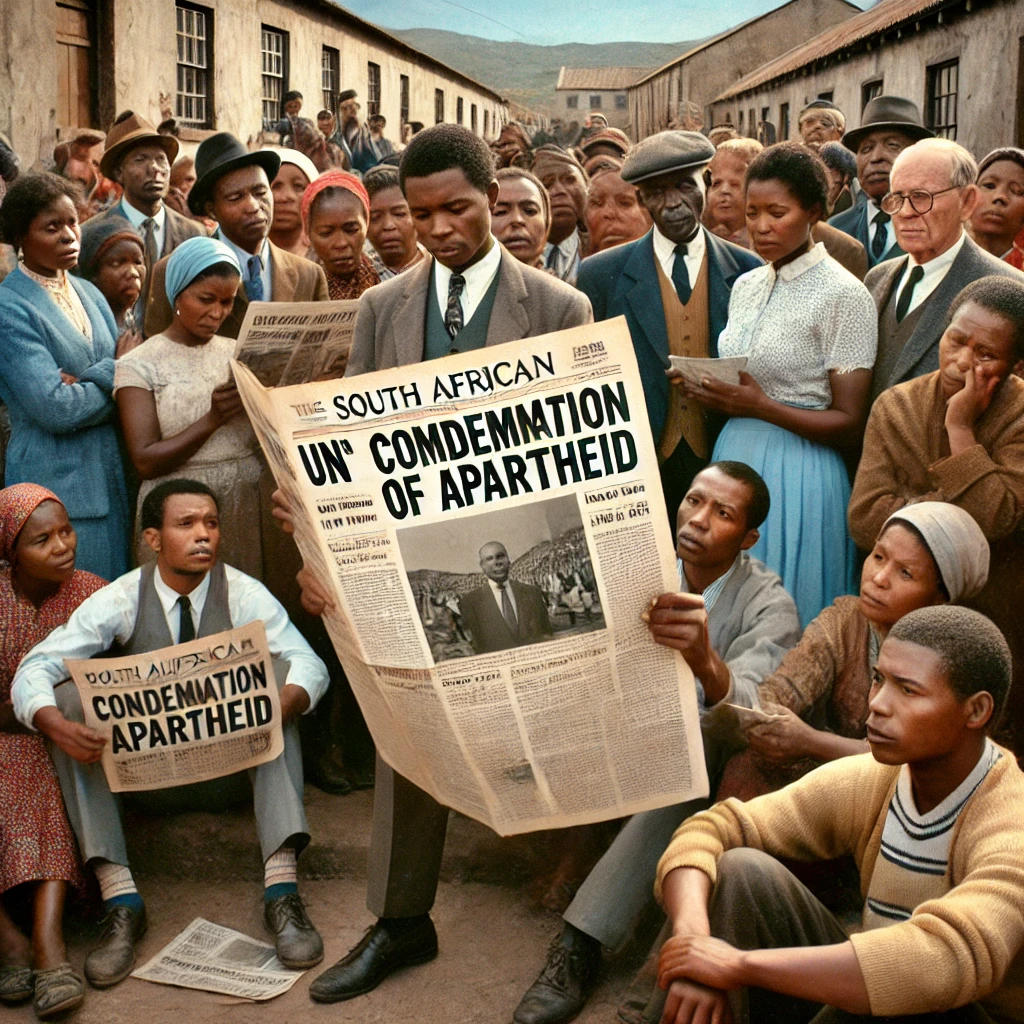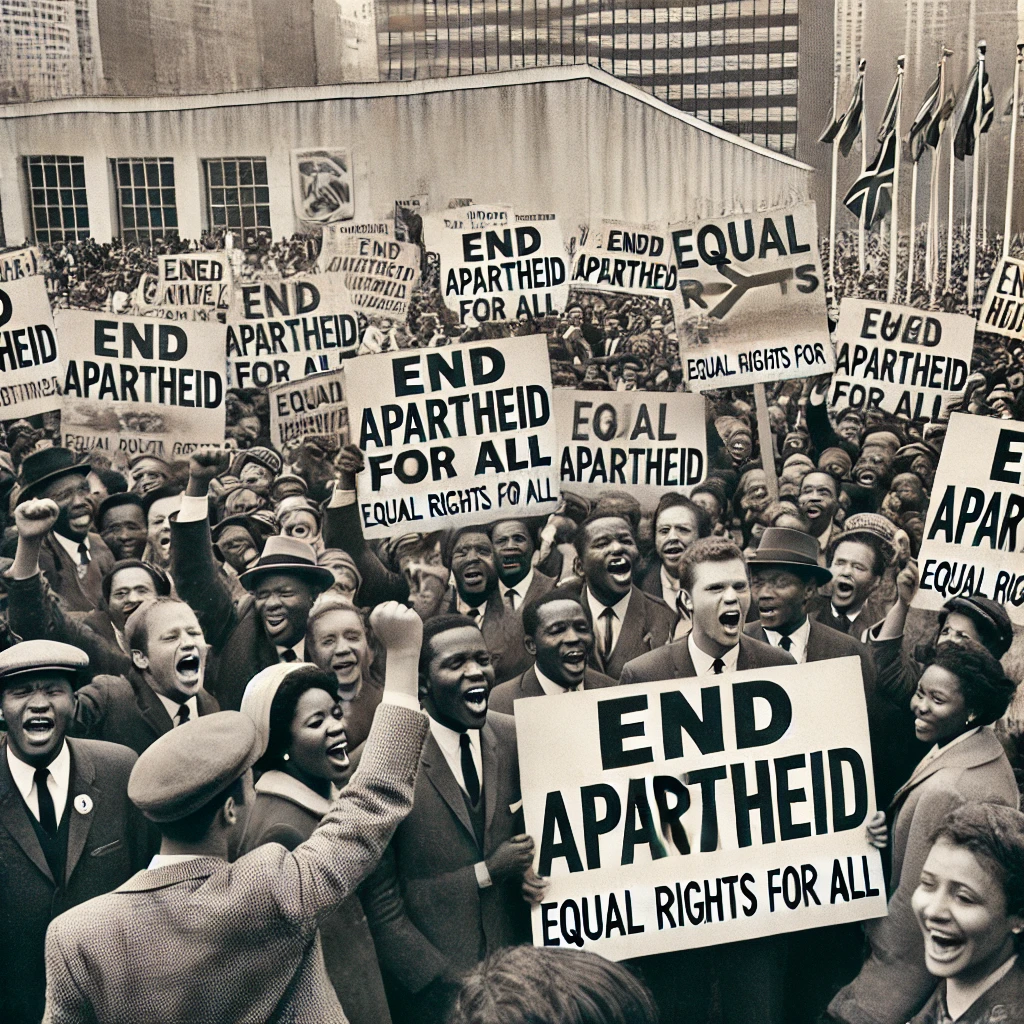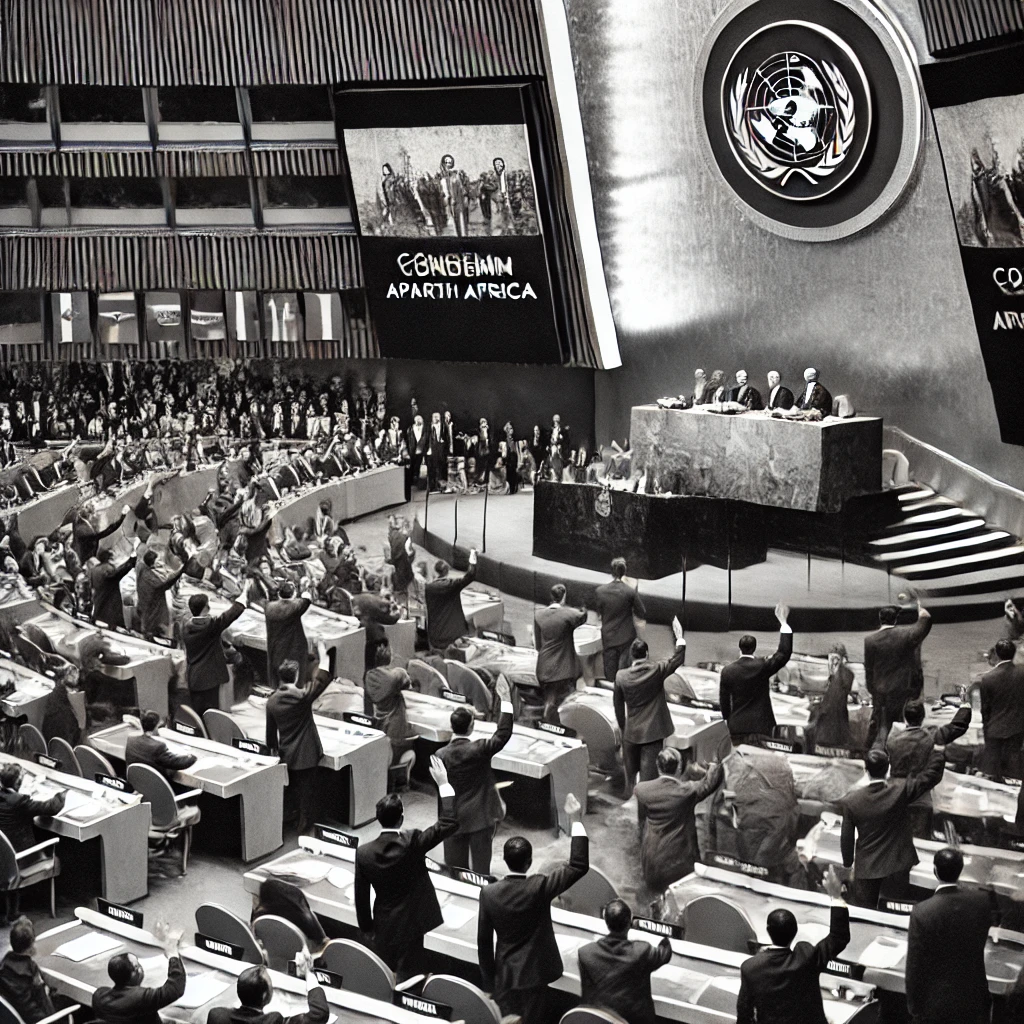On November 6, 1962, the United Nations General Assembly adopted a resolution condemning apartheid in South Africa, marking a significant moment in the global struggle against racial discrimination. This condemnation not only highlighted the injustices faced by the black majority in South Africa but also showcased the international community’s growing commitment to human rights and equality. The resolution was a critical step in raising awareness and galvanizing support for the anti-apartheid movement.

The Context of Apartheid
Apartheid, a system of institutionalized racial segregation and discrimination, was formally established in South Africa in 1948. Under this system, the rights of the majority black inhabitants were severely restricted, and they faced numerous injustices, including limited access to education, healthcare, and political representation. The international community began to take notice of the human rights violations occurring in South Africa, leading to increasing pressure for change.
The UN’s involvement was part of a broader movement to address colonialism and promote human rights worldwide. By the early 1960s, the international community was increasingly aware of the need to support those fighting against oppressive regimes. The resolution passed by the UN General Assembly represented a clear denunciation of apartheid, calling for its abolition and urging member states to impose sanctions and take action against the South African government.

The Resolution and Its Impact
The resolution adopted by the UN General Assembly was a significant moral victory for the anti-apartheid movement. It provided international legitimacy to the struggle for racial equality in South Africa and encouraged activists within the country. Prominent figures, such as Nelson Mandela and Desmond Tutu, drew strength from this global support as they continued to fight against the oppressive regime.
While the UN’s resolution did not immediately change the situation in South Africa, it set the stage for increased international activism. Over the subsequent decades, the global community would impose sanctions and boycott South African goods, intensifying pressure on the apartheid government. The condemnation by the UN played a crucial role in mobilizing public opinion and fostering a worldwide movement against apartheid.
Lasting Legacy
The UN’s condemnation of apartheid on November 6, 1962, represents a critical moment in the global fight for human rights. It not only drew attention to the injustices in South Africa but also reinforced the importance of international solidarity in the face of oppression. The resolution helped to lay the groundwork for subsequent actions that ultimately contributed to the dismantling of apartheid in the early 1990s.

Today, the legacy of this condemnation continues to resonate as a reminder of the power of collective action against injustice. The fight against apartheid has inspired movements for racial equality and social justice around the world, underscoring the importance of vigilance and advocacy in the ongoing struggle for human rights.
